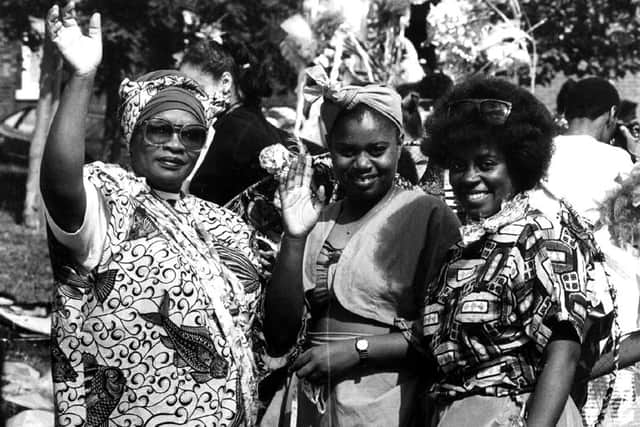Sheffield writer fears the city “is in danger of losing black artists”
and live on Freeview channel 276
Desiree Reynolds, an author and the Writer in Residence at Sheffield Archives, is one of many people who have provided evidence to Sheffield Race Equality Commission.
In the final week of hearings, commissioners have been hearing from individuals and organisations who have submitted evidence in relation to the Sport and Culture category, with the hearing on July 29 focusing on Culture.
Advertisement
Hide AdAdvertisement
Hide AdDesiree said: “From my point of view, we can’t talk about race without talking about anti-blackness, misogynoir or sexism.”


Originally from London, she told how she has questioned her desire to stay in Sheffield, the city she has lived in for many years.
Desiree explained: “Can I live in Sheffield as an artist? Can I thrive in this city?”
She believes that Sheffield “is in danger of losing black artists” as they are moving to other cities for better opportunities.
Advertisement
Hide AdAdvertisement
Hide AdDesiree said: “It says something about the landscape they’re trying to thrive in.”
Despite being a little hesitant at being involved with the Race Equality Commission, she described how she wanted to see commitment from the council.
Earlier this year, Ignite Imaginations launched an initiative encouraging Sheffield’s Windrush generation to share their stories after winning a bid from the council.
After claims of the appointment ‘upholding institutional racism’, a number of individuals wrote letters in protest, including Desiree.
Advertisement
Hide AdAdvertisement
Hide AdShe said: “If we had not acted, it wouldn't have given the money back.”
Desiree recommended that the council should conduct an annual audit examining how things have moved on if it is to show that it is serious about addressing racial inequalities in the city.
She explained: “Sheffield council is committed to short-termism.”
Describing how “quick fixes are not fixes at all”, she told how this type of behaviour “perpetuates fear amongst black artists”.
Advertisement
Hide AdAdvertisement
Hide AdDesiree stressed the importance of sustainability and the need for black cultural spaces, for example, providing apprenticeships for every arts organisation.
She said: “We have to build some kind of sustainable capacity. What pathways have the council created for black created pathways? We need to think about pathways and legacies.”
Desiree, who believes in collective action, explained that tackling anti-racism requires using different tools and only if we all do the same, “we all thrive”.
She added: “What is our shared vision? We need a shared vision, which means that the vision equals shared responsibility. We’re still living in a culture of us and them.”
Advertisement
Hide AdAdvertisement
Hide AdSheffield - a city between Manchester and Leeds - is described as one that “says no to transformative change”, as Desiree pointed out.
She believes there is “far more work to be done” in making arts more accessible.
Our Mel, a not-for-profit organisation which delivers workshops for women of colour “has changed the landscape” in the city however, according to Desiree.
She said: “Our Mel works really well in tapping into what other organisation’s don't do. It fills in the gap for black women in the city.”
Annalisa Toccara, founder of Our Mel, said she had not been asked to give evidence at the hearing, which she described as ‘weird’, and others described as ‘not quite right’.